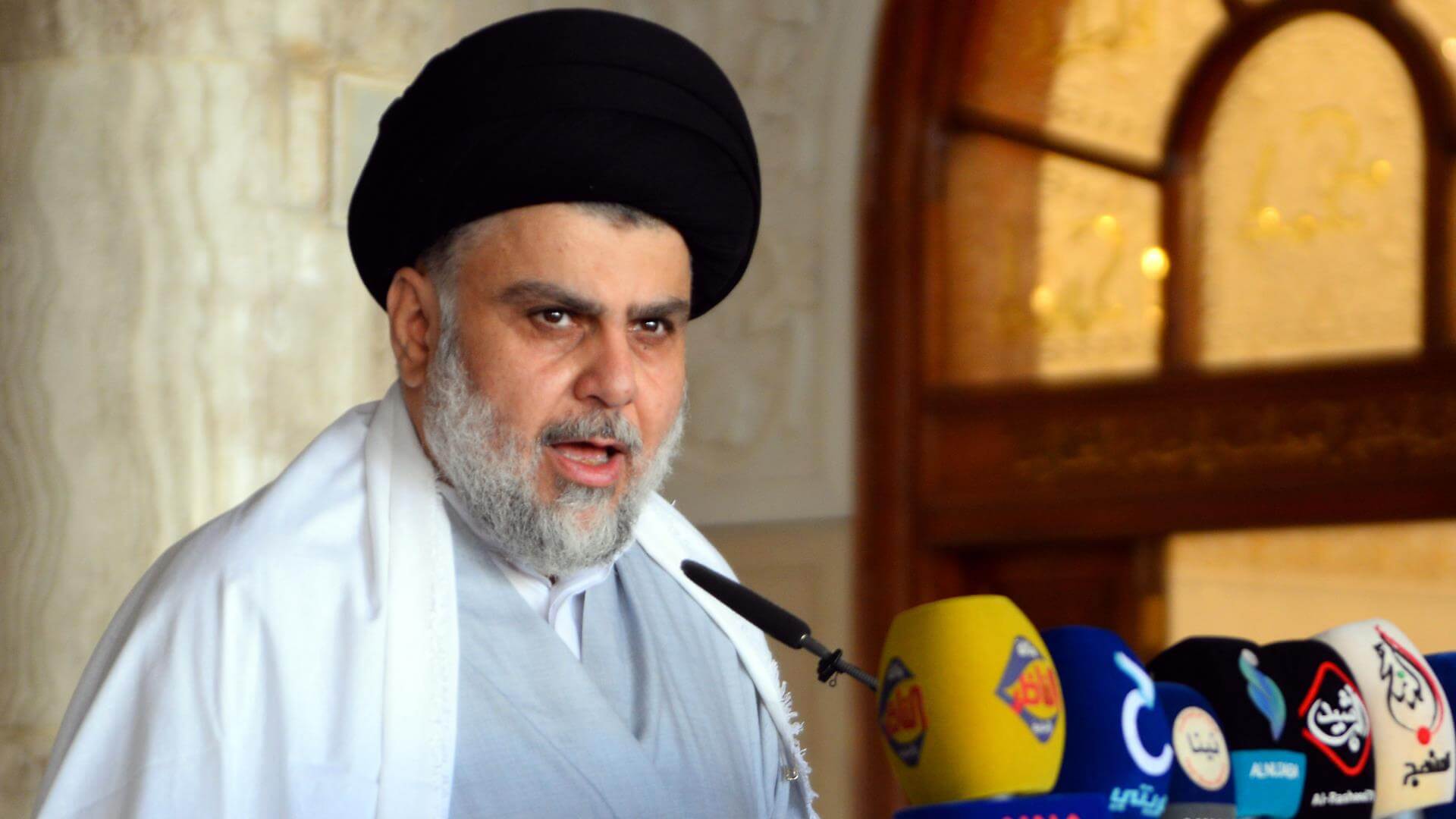Almost eight months after winning Iraq’s parliamentary elections, 73 lawmakers from Muqtada al-Sadr’s bloc resigned on Sunday, a move that is bound to further aggravate the country’s political impasse. The drastic step was taken as Sadr had frequently expressed his frustration over the parliament’s inability to form a government.
The move could also benefit pro-Iranian parties, which suffered heavily in last year’s vote, as they could move to form the next government.
In a letter addressed to parliamentary Speaker Muhammad al-Halbousi, Sadr submitted the resignations of the party members and thanked them for their contributions during the short period since the election. “This step is considered a sacrifice from me for the sake of the homeland and the people to rid them of the unknown fate, as we sacrificed previously for the liberation of Iraq,” he added.
In fact, Sadr already urged the party members to have their resignation papers ready as early as last week.
#Iraq in total chaos. 8+ months after October elections, failure of govt formation has reached breaking point as Muqtada al-#Sadr’s bloc have resigned from parliament upon leaders request.
— Julian Bechocha (@JBechocha) June 12, 2022
Speaker Halbousi just approved resignation letters.
The Sadrist bloc’s decision was approved by the Iraqi parliament. Al-Halbousi said the parliament had “reluctantly accepted” lawmakers’ decision to resign in accordance with Sadr’s wishes. Al-Halbousi added that despite a “sincere effort to discourage” Sadr from making such a move, Sadr went ahead with the move for the “sake of the country and the people.”
Iraq’s parliament has remained in a state of inertia since October’s elections. Negotiations between rival parties aimed at appointing a new president, prime minister, and cabinet have failed to materialise. Even though the Sadrist bloc emerged as clear winners of the election, the group has not been able to form an alliance.
While the bloc won 75 seats, more than any other party, it fell far short of forming a majority in the 329-member parliament. A coalition requires at least 165 seats to ensure a stable government.
Lawmakers loyal to Shia cleric Muqtada al Sadr resign from parliament amid prolonged stalemate over forming government pic.twitter.com/9D9JLqrwHe
— TRT World Now (@TRTWorldNow) June 12, 2022
Even though Sadr’s alliance negotiated with several other blocs, he failed to reach a deal with any party, accusing them of being corrupt. “We are trying to reform and we will not support corrupt people,” Sadr said last week. He added that “the solution is only a national majority government and reform can only be achieved through a national majority government.”
The resignation of Sadrist lawmakers could potentially benefit the pro-Iranian group of parties that have aligned to form the Coordination Framework, which includes the Fatah Alliance of Hadi Al-Amiri, the leader of the Badr Organization militias, the State of Law coalition of former Prime Minister Nouri al-Maliki, the Hikma party, and the Nasr Alliance led by another former PM Haider al-Abadi.
Also Read: Iran Will Maintain its Clout in Iraq Despite its Allies’ Setback in the Election
The Fatah Alliance is also represented by Shia militia groups like Kataib Hezbollah and the Popular Mobilization Forces (PMF).
Together with the State of Law coalition’s 34 seats and the Fatah Alliance’s 16 seats, the pro-Iranian alliance has the second-largest number of seats in the parliament. Moreover, the Iraqi constitution mandates that if any seat in the parliament seat becomes vacant, the candidate who obtained the second-highest number of votes in that seat’s district would replace them. This plays into the hands of the Coordination Framework, as many of its candidates came second to Sadrist members.
Sadr has been a fierce opponent of foreign presence in the country, whether by the United States or Iran. During his campaign, he promised to get rid of US troops from the country and end the sway of Iran-backed militias. In this regard, the resignation of his party members could backfire, as it could provide Tehran a greater foothold in the country.

